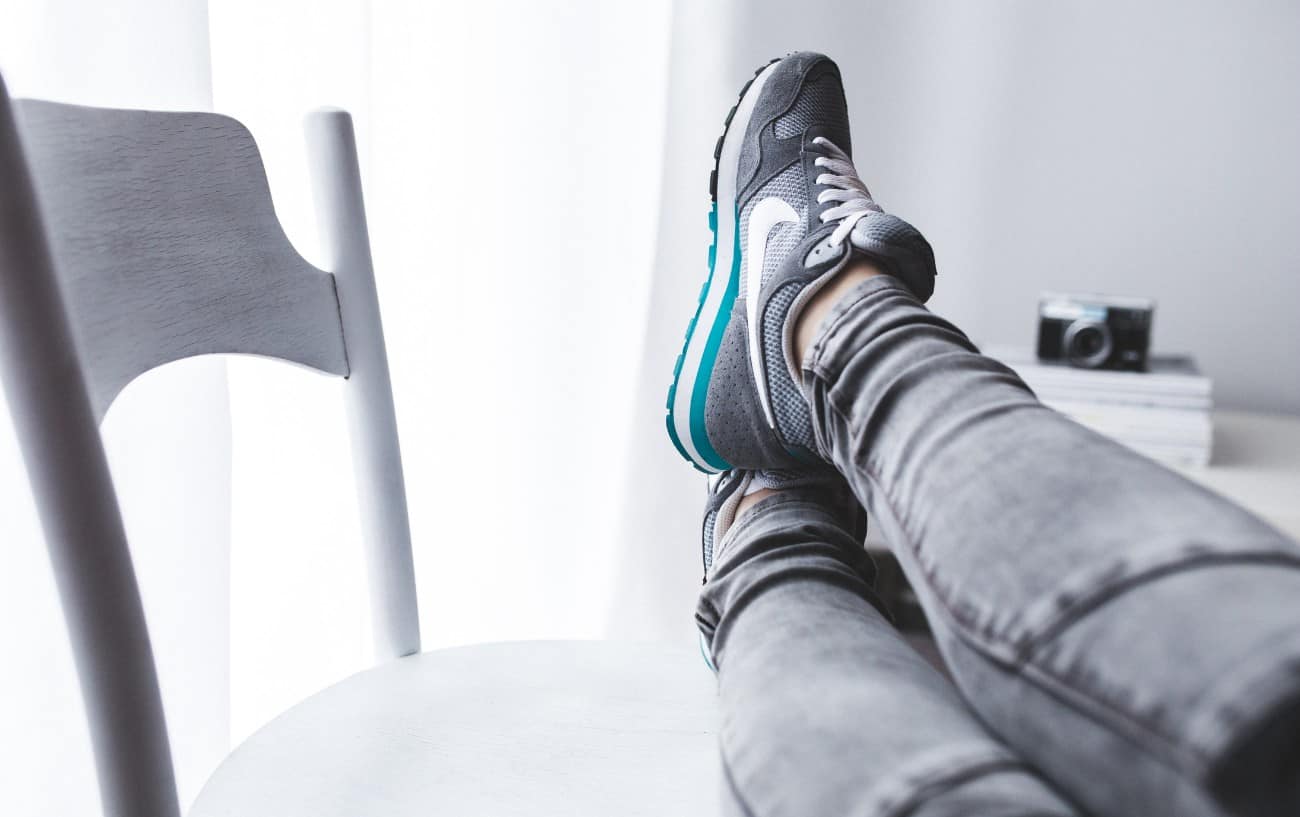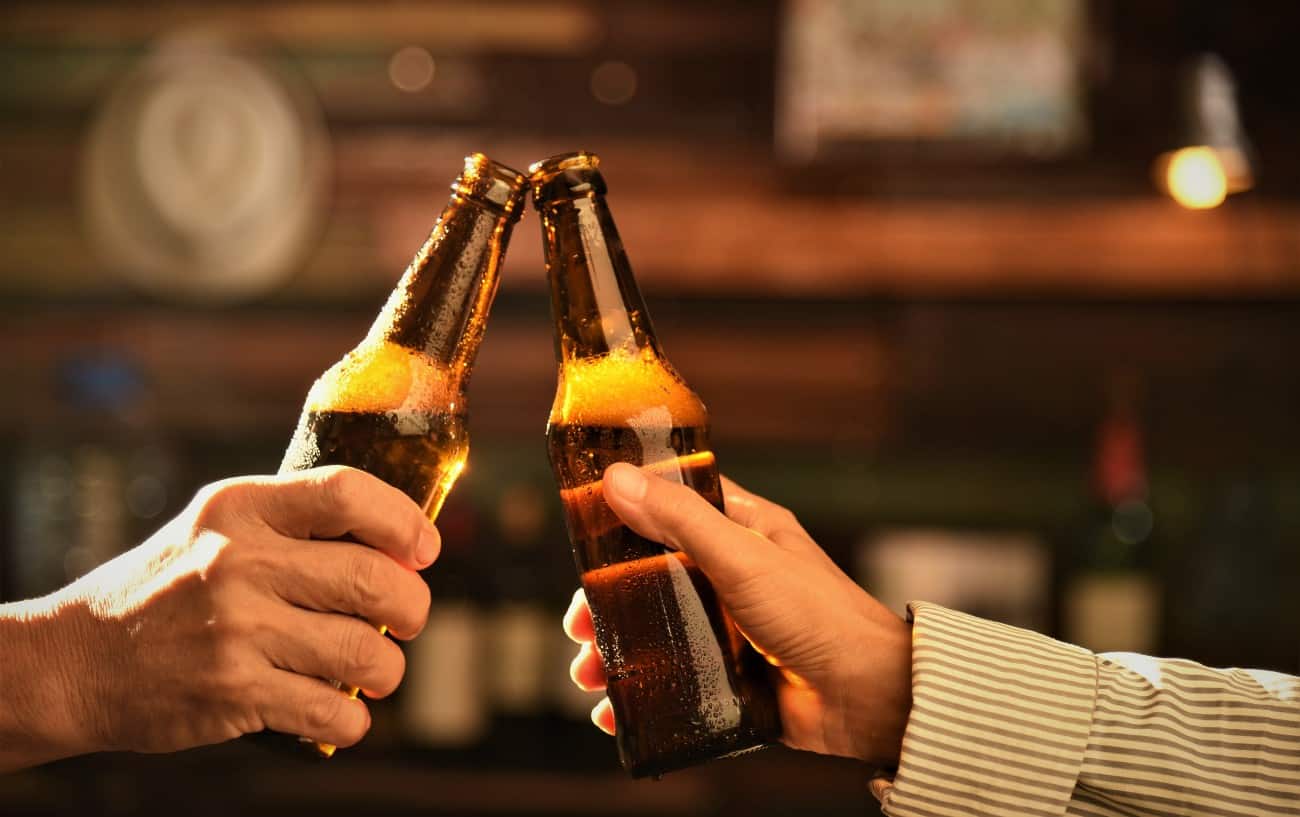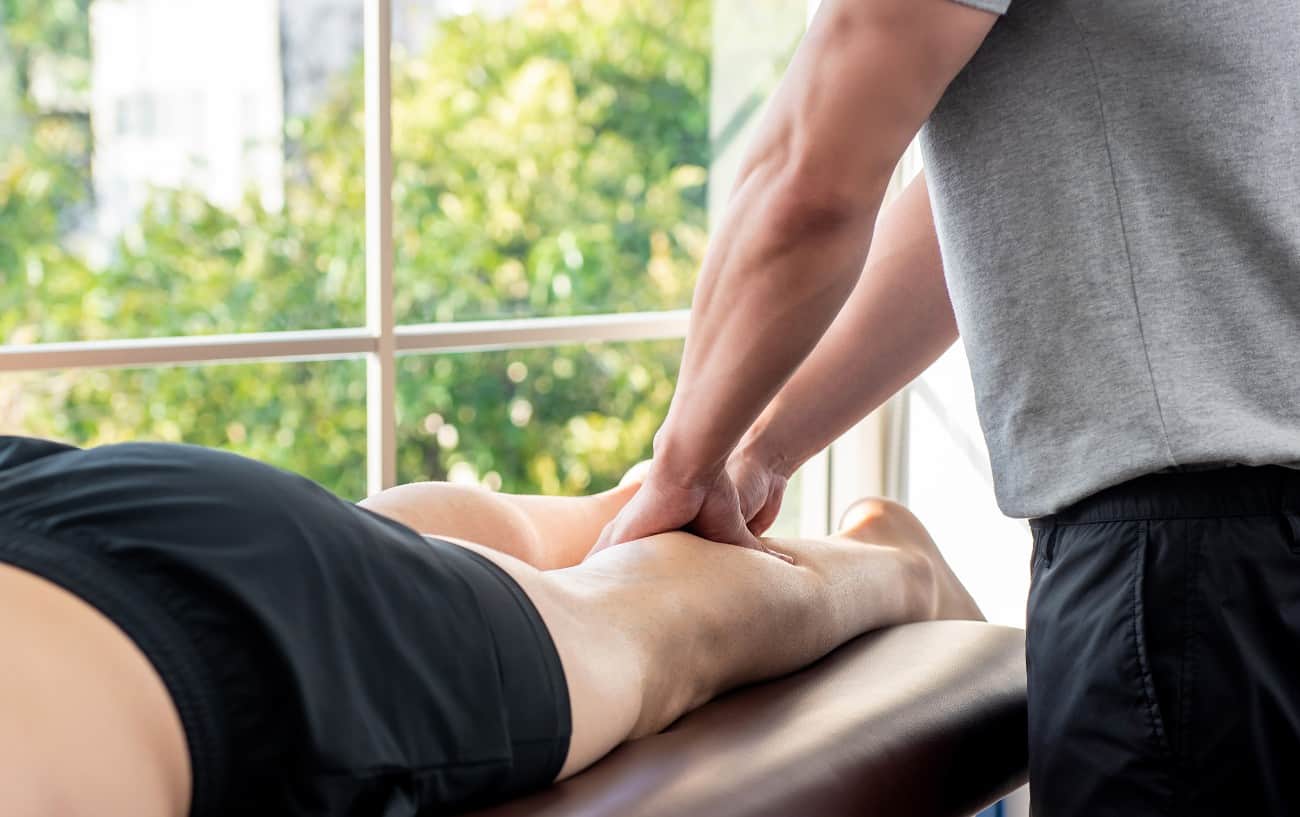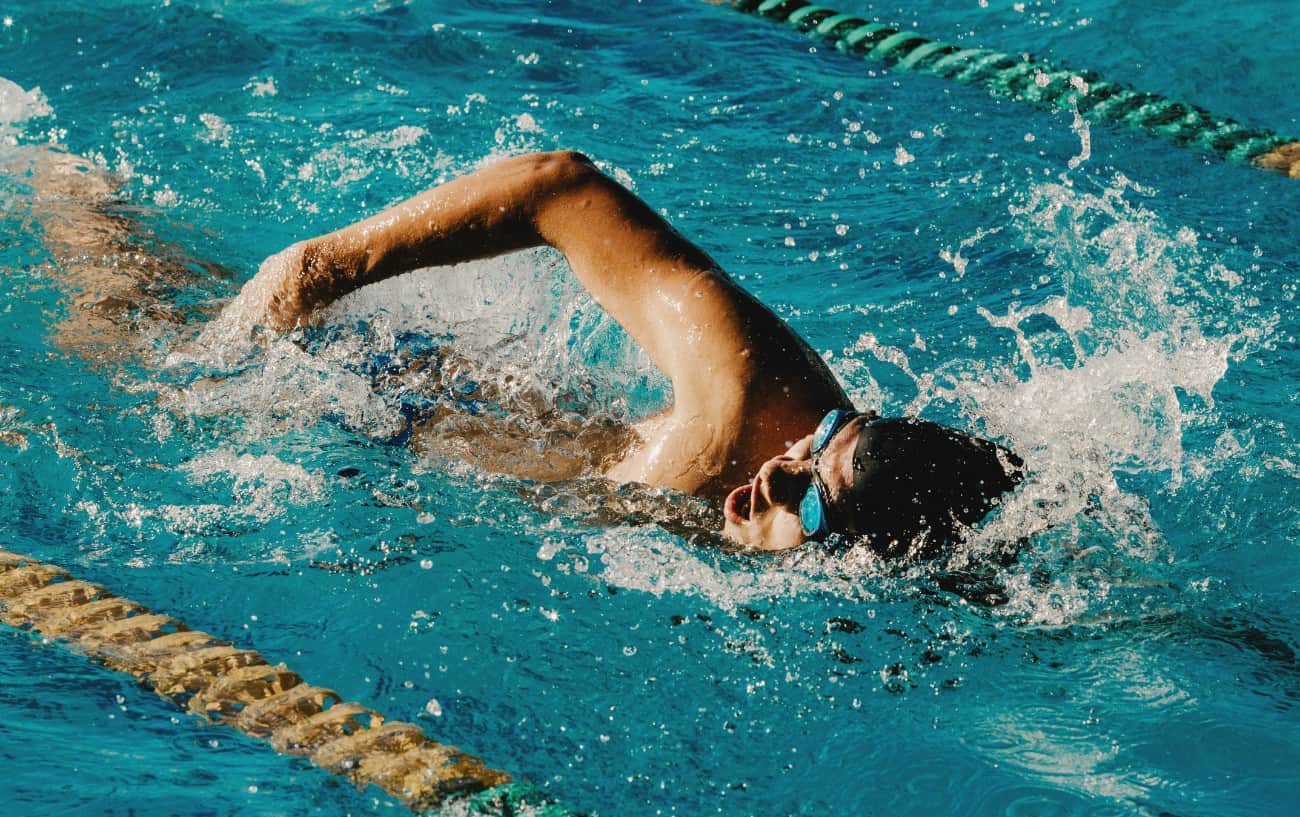Whether it’s your first marathon or you have enough marathon finisher’s medals to line an entire wall, your body needs to recover whenever you finish a marathon.
In fact, as a running coach, I call the marathon recovery period the 27th mile of the race to show just what an important part of the marathon experience it is and that you’re not really done with the race until you’re fully recovered.
In this guide, I’ll show you why post-race recovery is such an important part of your marathon training plan and how long it actually takes to recuperate so you can bounce back quickly, and ready to start training for your next adventure.

Why Is Post-Marathon Recovery So Important?
One of the allures of the marathon is that the 26.2-mile distance is attainable but challenging. Finishing a marathon is an impressive feat because it requires physical and mental grit and consistent, dedicated training.
However, a marathon is taxing on the body, and jumping back into training too soon can increase the risk of overuse injuries, overtraining and burn out.
No runner wants to be out of the game, so respect the recovery process!
How Long Should You Rest After a Marathon?
Many runners aren’t sure how long to wait to run after a marathon. Unfortunately, there isn’t a simple answer to this question. How long you should wait to run after a marathon is individualized to each runner and even each race for that runner.
When comparing the post-marathon recovery of two different marathon runners who took on the same race, factors such as intensity level, age, sex, fitness, general health and nutritional status, hydration tactics, and recovery strategy can all affect how long it takes to recover.
The same runner may also have a different post-marathon recovery timeline for two different races.
For example, I have felt my body has been ready to run three or four days after one marathon, but my recovery has taken closer to a week or ten days following another marathon.
Differences and individual needs aside, most running coaches recommend taking at least 3-7 days off from running after a marathon to allow your body to recover before adding more stress through training.
Most runners should take at least the first week off of running after a marathon.
More conservative coaches say this time off should be extended to two weeks or more. The key is to listen to your body. Do not run if you are still sore and your body feels like resting. It should, you’ve just put a whole lot of hard work in!

How Long Does it Take to Recover from a Marathon?
Even though each runner’s recovery will vary, studies show the body may take up to 4 weeks or so to recover from a marathon fully.1Tsai, K., Hsu, T.-G., Hsu, K.-M., Cheng, H., Liu, T.-Y., Hsu, C.-F., & Kong, C.-W. (2001). Oxidative DNA damage in human peripheral leukocytes induced by massive aerobic exercise. Free Radical Biology and Medicine, 31(11), 1465–1472. https://doi.org/10.1016/s0891-5849(01)00729-8
Another study2Hikida, R. S., Staron, R. S., Hagerman, F. C., Sherman, W. M., & Costill, D. L. (1983). Muscle fiber necrosis associated with human marathon runners. Journal of the Neurological Sciences, 59(2), 185–203. https://doi.org/10.1016/0022-510X(83)90037-0 found that post-marathon muscle damage can linger for up to 14 days after the race, resulting in a loss of muscular power.
The immune system is also compromised after a marathon, so it’s important to limit your exposure to illnesses and germs in the days following race day.
13 Expert Post-Marathon Recovery Tips
#1: Start Recovery Right Away
What you do and don’t do immediately after you cross the finish line impacts the entire arc of your post-marathon recovery.
Adopt a mindset that the post-marathon recovery period is an inextricable component and just as important as the race itself.
You took your training seriously and put your heart and soul into the race, so you should attack the recovery with the same resolve and dedication.
#2: Keep Moving At the Finish
Resist the urge to plop down in an exhausted and exhilarated heap at the finish line.
Walking at least 10-15 minutes right after a marathon can help flush the metabolic byproducts (previously thought of as the famous lactic acid) out of your legs and bring new oxygen and nutrients to your tired muscles, facilitating healing and reducing delayed-onset muscle soreness (DOMS).
#3: Stretch
After you cool down you can add in some light stretching to your post-race routine. Ensure you don’t strain your muscles too much by overstretching. Stretch gently to feel relief, not pain.
#4: Refuel As Soon As Possible
One of my key expert tips for fast post-marathon recovery is to refuel as soon as possible after the race. It’s crucial to get in carbohydrates and proteins (ideally at 3:1 or 4:1 ratio in terms of grams of carbs to protein).
Refueling can help fuel depleted muscles, replenish glycogen stores, and start repairing muscle damage from the race.
If you can’t stomach solid foods, start with sports drinks, a protein shake, chocolate milk, or even a milkshake.
Continue fueling properly into the next day.

#5: Rehydrate
Running a marathon causes you to lose more fluids than you might think, so ensure you drink enough after the race, including fluids with electrolytes.
Your urine should return to pale yellow by 24 hours, preferably sooner.
#6: Put On Dry Clothes
It might sound like more of a matter of comfort than actually aiding post-marathon recovery, but changing out of your damp and sweaty running clothes and putting on warm, dry clothes can prevent unnecessary shivering, which can rob your body of the energy needed to recover.
Shivering also utilizes your muscles, and your muscles are spent after a marathon. We want to put them into relaxation and recovery mode, not ask them to do more work.
#7: Do NOT Take Anti-Inflammatories
One of the top expert tips for fast post-marathon recovery is to resist the urge to take ibuprofen or other anti-inflammatory painkillers. These medications can further tax your liver, kidneys, and GI tract, which are already stressed from the marathon.
Additionally, anti-inflammatories can inhibit exercise recovery by attenuating the necessary inflammatory process muscles need to heal.

#8: Go Easy On Post-Marathon Beer
A cold beer after a marathon or celebratory cocktails at dinner may seem appealing at the moment (and deserved!), but alcohol can inhibit post-marathon recovery.
While one drink won’t derail your marathon recovery, experts agree that if you want to recover quickly, going easy on alcohol is a good idea.
Alcohol not only contributes to dehydration but can also interfere with the effectiveness of your post-marathon fueling by delaying the absorption of the carbohydrates and protein you’re investing in that post-marathon meal.
#9: Consider a Nap
Particularly if you woke up early for the race or slept poorly, taking a 90-minute nap a few hours after you’ve crossed the line can help encourage recovery.
Getting adequate sleep in the nights following the race is equally important.

#10: Use Recovery Boots
Recovery boots, such as the Therabody RecoveryAir PRO, are a great way to the workout recovery regime of elite athletes, including marathoners.
The Therabody RecoveryAir PRO boots provide pneumatic pressure to your lower limbs to encourage circulation and lymphatic drainage.
Athletes report that Therabody RecoveryAir PRO boots can reduce delayed-onset muscle soreness (DOMS), muscle fatigue, swelling, and stiffness.
Using pneumatic compression boots in the post-marathon recovery period can hasten recovery and help you get back to running sooner.
#11: Engage In Active Recovery
While you should definitely take days off from running after the marathon and significantly reduce the intensity of your training, you don’t have to be inactive.
Light exercise, such as walking, swimming, elliptical, and riding an exercise bike the day after the marathon, can help speed up recovery time.
Light, low-impact cross-training exercise increases circulation, warms up your muscles and can reduce stiffness and discomfort.

#12: Get a Massage
A good sports massage isn’t just a luxurious indulgence but also a tip for fast post-marathon recovery. Massage increases circulation, mobility, and range of motion in tight and sore muscles.
If you can’t afford a session with a professional masseuse or physical therapist, ask a partner for a rub down, use a massage gun, or try self-myofascial release techniques like foam rolling.
#13: Try Contrast Baths
Alternating soaks in the tub with ice baths and warm baths can help speed up post-marathon recovery. Ice baths may reduce DOMS, while warm soaks provide compression and increase blood flow.
There you have it! You’ve run your marathon; now rest up and recover to get at it again.
If you’ve mastered the marathon distance and want to consider ultras, check out our tips on choosing your first ultramarathon!












